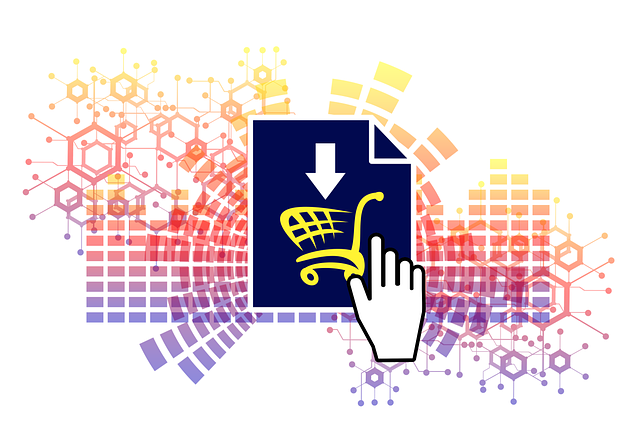
Confidential computing has revolutionized data security for human rights activists and music industry executives by providing a secure enclave within hardware like Intel SGX, ensuring sensitive information remains encrypted and protected throughout its lifecycle. This innovation is critical as it guarantees the private internet experience necessary for these professionals, safeguarding against unauthorized access and surveillance, whether data is at rest, in transit, or being processed. For music industry executives, this means that contracts, artist rosters, and trade secrets remain confidential, protecting the creative process and intellectual property while preserving the integrity of private communications. This technology not only enhances privacy but also aligns with the highest standards of data protection, offering a Private Internet Experience that is essential for the secure handling of sensitive music-related assets. It acts as a digital guardian, assuring that data confidentiality is maintained across all stages of its lifecycle and setting new benchmarks for cybersecurity in the digital era, particularly within industries where data privacy and security are paramount. The adoption of confidential computing thus becomes a cornerstone for protecting sensitive information and providing a secure foundation for executives to navigate their digital activities with confidence.
Confidential computing emerges as a pivotal technology safeguarding the digital rights and data integrity of human rights activists. This article delves into its multifaceted applications, particularly within the sensitive realm of the music industry. By exploring the mechanics that underpin confidential computing, we reveal how it fortifies the private internet experiences of executives, ensuring their advocacy remains encrypted and secure. The ensuing discussion illuminates the profound impact of this technology on preserving the digital liberties of these influential leaders, while also highlighting its critical role in upholding the integrity of human rights activism online.
- Unveiling the Essence of Confidential Computing: A Shield for Human Rights Activists' Data Integrity
- The Symphony of Privacy: How Confidential Computing Orchestrates a Private Internet Experience for Music Industry Executives
- Encrypting Advocacy: The Role of Confidential Computing in Protecting Human Rights Activism Online
- Composing a Secure Future: The Impact of Confidential Computing on the Digital Liberties of Music Industry Leaders
Unveiling the Essence of Confidential Computing: A Shield for Human Rights Activists' Data Integrity

Confidential computing represents a transformative approach in safeguarding data integrity, particularly for human rights activists who operate under conditions where sensitive information is at constant risk of exposure or interception. This advanced security paradigm ensures that data processing occurs in a secure and isolated environment, known as a “secure enclave,” which prevents unauthorized entities from accessing confidential data, even as it is being processed by cloud services. By leveraging hardware-based protections, such as Intel SGX (Software Guard Extensions), confidential computing allows for the encryption of data in use, not just at rest or in transit. This means that activists can conduct their critical work without the fear of compromising their sources, methods, or personal information.
The implications of confidential computing for human rights activists are profound, as it provides a private internet experience that mirrors the level of privacy and security one would expect from offline interactions. In the context of the music industry, where executives handle sensitive contracts, artist rosters, and trade secrets, confidential computing can offer a similar level of protection. This ensures that the creative process remains intact, intellectual property is secure, and the integrity of private communications between industry professionals and their clients is maintained. The adoption of confidential computing by these industry executives can thus be seen as an extension of the principles that protect human rights activists: the right to privacy, data security, and the freedom from unauthorized surveillance.
The Symphony of Privacy: How Confidential Computing Orchestrates a Private Internet Experience for Music Industry Executives

In an era where digital footprints are as ubiquitous as they are unavoidable, the need for a private internet experience, particularly within the music industry, is paramount. Confidential computing emerges as a pivotal technology that orchestrates this privacy with precision and harmony. It ensures that sensitive data, such as unpublished tracks, artist negotiations, and market strategies, remain confidential throughout their lifecycle. This sophisticated approach to data protection encompasses the entire spectrum of operations, from data storage to processing, effectively creating a secure environment where music industry executives can operate without fear of breaches or leaks. The technology acts as a digital conductor, directing the flow of information with a symphony of encryption and access controls that harmonize the competing demands of security and usability. As a result, executives are afforded a private internet experience that is not only secure but also seamless, allowing them to focus on creative endeavors and strategic planning without compromising on confidentiality.
The adoption of confidential computing by music industry executives marks a significant milestone in the evolution of cybersecurity. It represents a paradigm shift from reactive measures to proactive strategies that protect data at rest, in use, and even during processing, which are traditionally the weakest links in security chains. This all-encompassing approach ensures that the delicate ballet of digital interactions remains concealed within a fortress of encryption, accessible only to authorized parties. The implications for privacy and security within the music industry are profound, as confidential computing paves the way for a new standard of confidentiality that will redefine how sensitive information is handled in the digital realm.
Encrypting Advocacy: The Role of Confidential Computing in Protecting Human Rights Activism Online

In the digital age, human rights activists increasingly rely on online platforms to disseminate information, rally support, and safeguard vulnerable populations. However, this reliance also exposes them to significant risks, including surveillance, data breaches, and cyber-attacks that can compromise their privacy and security. Confidential computing emerges as a critical solution in this landscape, offering a private internet experience that is indispensable for such activists. It ensures that sensitive data remains confidential both in transit and at rest, utilizing state-of-the-art encryption technologies. By leveraging trusted execution environments (TEEs), activists can share information securely without fear of interception or unauthorized access. This level of security is particularly vital when dealing with sensitive materials such as the documentation of abuses or the coordination of sensitive operations, which could have dire consequences if exposed. The integration of confidential computing within their digital strategies allows human rights defenders to maintain a private internet experience, thereby preserving the integrity and confidentiality of their advocacy efforts online.
Furthermore, the music industry, known for its creative and often collaborative nature, can also benefit immensely from the principles of confidential computing. Executives in this field handle a wealth of proprietary information, from exclusive recordings to strategic planning documents. Ensuring the privacy of these assets is paramount, not only to protect intellectual property but also to prevent potential exploitation or leaks that could undermine negotiations and partnerships. Confidential computing provides a robust framework for maintaining a secure and private internet experience for music industry executives, safeguarding their operations from cyber threats while enabling them to collaborate confidently with artists, producers, and other stakeholders in the industry’s digital ecosystem.
Composing a Secure Future: The Impact of Confidential Computing on the Digital Liberties of Music Industry Leaders

In an era where digital presence is paramount, especially in the music industry, executives face a myriad of challenges related to data privacy and security. The advent of confidential computing presents a significant advancement in securing the private internet experience for these leaders. Confidential computing ensures that sensitive information, such as unreleased music tracks or proprietary business strategies, is processed on remote servers without exposing it to the cloud provider or other users. This paradigm shift is crucial for safeguarding trade secrets and personal data from cyber threats, which are increasingly sophisticated. As a result, industry executives can navigate their digital environments with unprecedented confidence, knowing that their confidential data remains shielded throughout all computational processes.
The implications of confidential computing on the digital liberties of music industry leaders are profound. It not only protects against external threats but also from internal risks, such as rogue employees or compromised systems within their organizations. This technology allows for a secure collaboration environment where executives can safely share and discuss sensitive matters without fear of unauthorized access or leaks. The private internet experience is thus transformed into a realm where innovation can flourish without the looming threat of data breaches. As confidential computing continues to evolve, it promises to redefine the standards for digital security in the music industry, ensuring that leaders can compose not only hit songs but also a secure future for their digital endeavors.
Confidential computing emerges as a pivotal advancement in safeguarding the sensitive data and communications of human rights activists, ensuring their advocacy remains secure and private. This technology not only enhances the private internet experience for music industry executives but also fortifies the digital liberties they cherish. By encrypting data at the source and processing it without exposing it to the untrusted cloud environment, confidential computing offers a dual benefit: protection of critical information and maintenance of privacy at an operational level. As this technology continues to mature and integrate into various platforms, it composes a secure future for both activists and industry leaders alike, underscoring the importance of privacy in an increasingly interconnected world.







